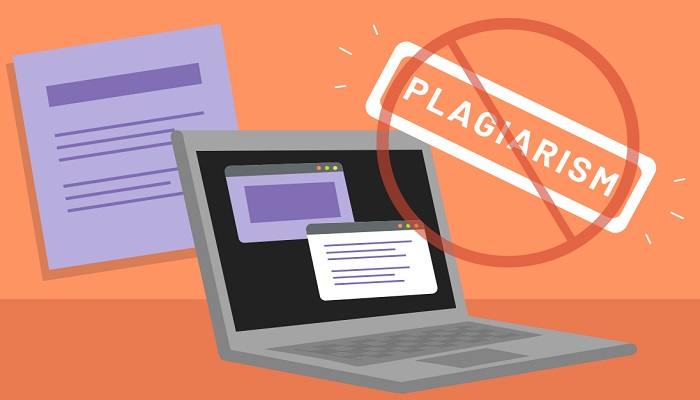Are you aware that some bad blogging habits can kill your blog faster than a dead host?
If by now your blog has not started yielding a desirable result, it’s possible you have some bad blogging habits.
As employee behavior affects productivity in an organizational setting, there are also bad habits that can kill your blog.
When this issue was raised, our guest charged every blogger to change his approach to blogging if you really wanted to increase your Google rankings in the coming days.
The way people are pursuing blogging needs to be changed as competition is very high now. Whatever worked a few years back may not work in the coming years.
The only way to prove yourself not to be a fly-by-night blogger is to do things right.
So, no amount of commitment will make you become a professional blogger if you don’t have proper rules of etiquette.
You did well planning your blog before you started.
But the question is how many of the required steps to start a blog did you follow?
If you want to know whether everything is fine or not, check your journey so far and listen to yourself from the inside.
Did you say Oops?
If telling lies could cost you your 9-5 job, don’t expect less from your blog.
You might not know that deceiving your audience to generate leads to your affiliate links is fraudulent.
So, if you do all this, where do you see your blog in the near future?
That shows how much havoc bad blogging habits do to a blog.
Blogging is personal, though.
So, you could do anything you like with your blog, that’s nobody’s business. But because the industry is in constant change, you need to follow the right direction.
For that reason, I decided to address this issue in order for you to be conscious of your blogging habits and stay away from making mistakes that will chase you off the web.
I’m not in a position to ask you to stop doing what you do even if it hurts your audience. Whatever blogging habit you form is okay.
But the truth is if what I’m about to tell you would add more value to your blog, why don’t you check it out?
Bad blogging habits to avoid
The following is the list of bad habits that can kill your blog. If you want to become a successful blogger, you have to do all you can to avoid them.
1. Keyword cannibalization
Keyword cannibalization is when you target the same keyword on two or more blog pages.
By implication, both pages will compete against themselves.
Technically, all the link juice meant for one page will split across all the pages targeting the same keyword on your blog.
This bad blogging habit can be responsible for low page authority, quality, and conversion rate.
The worst part of it is that Google might not even rank any of the affected pages with the cannibalized keyword.
All you have to do is to take note of all your previously used keywords by having the RankMath SEO plugin installed on your blog.
The plugin indicates if a target keyword has once been used.
Just make sure you take note of this aspect each time you’re writing a new post.
2. Keyword stuffing
When you’re creating a post and overuse your primary keyword, you’re committing keyword stuffing.
Repeating a focus keyword in a post and meta description incessantly is one of the bad habits that can kill your blog.
It would be best if you avoided them.
This practice is considered to be spammy and Google frowns at it.
During your keyword research, gather as many keyword synonyms or latent semantic indexing (LSI) keywords as possible to avoid overusing your primary keyword in a post.
3. Not doing keyword research
Not doing keyword research might lead to publishing irrelevant posts on your blog. This could be one of the reasons why you’re not getting substantial traffic.
Meanwhile, keyword research is finding your audience’s search intent and providing them with the most relevant content on your blog.
Because the process involves spying on your competitors, it can equally serve as a competitive advantage.
During your research, you will discover your competitors’ ranking keywords, strengths, and weaknesses, in which you could find new greater opportunities for yourself.
There are several tools for doing keyword research. So, you don’t have to be worried about stress.
For example, you’ve got Google keyword planner, MOZ, SEMRush, UberSuggest free plan, and many more.
These SEO tools will give you in-depth information regarding your audience’s search intent.
4. Checking stats constantly
It’s a good thing to assess your website, check the index, analytics, and see how you’re performing. But that doesn’t necessarily mean you have to do it every day or thereabouts.
Checking your stats every now and then is a bad blogging habit you need to do away with because it can affect your productivity.
You need to know your rankings and how your audience engages with your posts using Google or any other related tool.
But when you do it too often, it makes you lose focus especially, if you’re not seeing any significant change in your analytics yet.
This doesn’t mean you’re losing it.
Technically, it takes a few weeks to see the effect of any change you make on your blog. Google, for example, has intervals at which blogs are indexed.
So, if you want to see any significant change in your stats, you have to do it based on the schedule. And while you’re waiting, you can focus more on adding quality content.
5. Tricking your audience into a buying customer
It’s good to have a blog and make money from it either by selling a product or service to your audience.
But the question is how do you convert your audience into a buying customer?
Many bloggers tell a series of lies trying to make you buy from their affiliate links at all costs.
Just a few of them care about your interest.
That’s too bad.
This bad blogging habit is common among affiliate marketers and those who approach you for backlinks and guest post services on authority websites.
I can’t imagine someone promising you 1000 backlinks with just $20. After collecting your money, all they send to your website are spammy links.
The “good ones” won’t even send you any links and when you ask for them, they tell you it would take time to index.
I had been a victim.
I waited till thy kingdom come, no f*cking links were added.
So, how would I continue doing business with such a rogue?
That shows you can’t go a long way in blogging with your marketing pranks. It’s just a matter of time to be discovered.
Once your audience realizes you’re punky, they dump you.
6. Plagiarism

Plagiarism is using a part or whole of other people’s articles on your blog and pretending to be the owner of the work. This practice is one of the common bad habits that can kill your blog.
It’s not sensible to commit intellectual property theft and feel celebrated when your audience reads your blog and says,
“Keep up the good job!”
If it’s true that there is no new idea as it seems in blogging, why don’t you learn how to be creative before becoming a blogger?
Being creative would make you create better content and know how to acknowledge your sources.
7. Time wastage on social media
As every website owner is doing everything possible to tie visitors down longer than they intend in order to beat a high bounce rate, bloggers should be aware of the dark side of social media in this manner.
Based on statistics found on Medium,
About 45% of the people consuming social media all over the world spend an average of 2 hours and 23 minutes per day on social media. One thing we bloggers need most is time.
The reason is that the little time we have can easily slip away if we fail to plan and coordinate our activities on social media.
Against this problem, you should be wary of how much time you spend on social media.
For example, the way Facebook and Twitter was designed was to make users lose their way on the platform. While you’re trying to get out, your attention will be drawn to things not relevant to your initial goal.
Unconsciously, you will be stuck on the platform for the whole day anticipating “Likes”, “Shares” and “Comments” on your old posts.
So, we need to use our time constructively.
8. Obsessed with backlinks
This practice is one of the common bad blogging habits that can kill your blog. If you’re obsessed with getting backlinks, you have to stop now.
One of the changes that occurred in the blogging landscape in 2020 is to prioritize quality content.
Since the release of the Google BERT framework in November 2019, blogs with quality content have a tendency of higher rankings on Google.
That doesn’t mean backlinks don’t count anymore. You just don’t have to make them your priority.
If your desire for backlinks is so much that all you do is beg or pay for them, you might end up losing your reputation on Google.
Backlinks are sweet and at the same time dangerous if you don’t get them naturally.
Instead of investing in spammy links, why don’t you invest in quality content and let quality links find you?
Those who appreciate your content will voluntarily offer to place your links on their blogs without you asking.
That is the perfect and healthiest way of gaining inbound links to your blog.
Obsession is a very dangerous habit. It can tempt you to go off the limit. And if you step on Google’s landmine, you know what that means.
9. Blindly following every rule
The internet is blessed with many people sharing different ideas or personal practical experiences that can help you grow your blog.
But yet, you can’t follow everything you see if you don’t want to be overwhelmed with so many rules.
If you allow yourself to be blindfolded by unnecessary gestures, you might just be circumventing your problem.
I don’t mean other people’s ideas are wrong. Even the popular ones might not work for you if they’re not applicable to your case.
Sometimes if you take a rule to step up, if care isn’t taken, the next rule you take might send you back to where you are coming from.
What I mean is before you implement a rule, whether it’s written or unwritten, don’t jump at it. Before adopting it, ensure it won’t cause your blog any potential damage.
10. Not connecting with other bloggers
The last of the bad blogging habits you should avoid on this list is creating a barrier between yourself and other bloggers.
It’s unprofessional to avoid having close contact with people you both do the same business. Even if you claim to know it all, you can’t be your own audience or customer.
So, it would be best if you had other people around you.
Aside that, blogging can’t be done successfully without networking with your colleagues or co-bloggers.
There are different blogging groups on social media, most especially on Facebook, that can help you grow.
Join relevant groups and connect with lovely people with whom you share the same worldviews.
This will help you easily find support when you’re stuck.
It will also keep you informed of the latest updates or trends in your industry.


